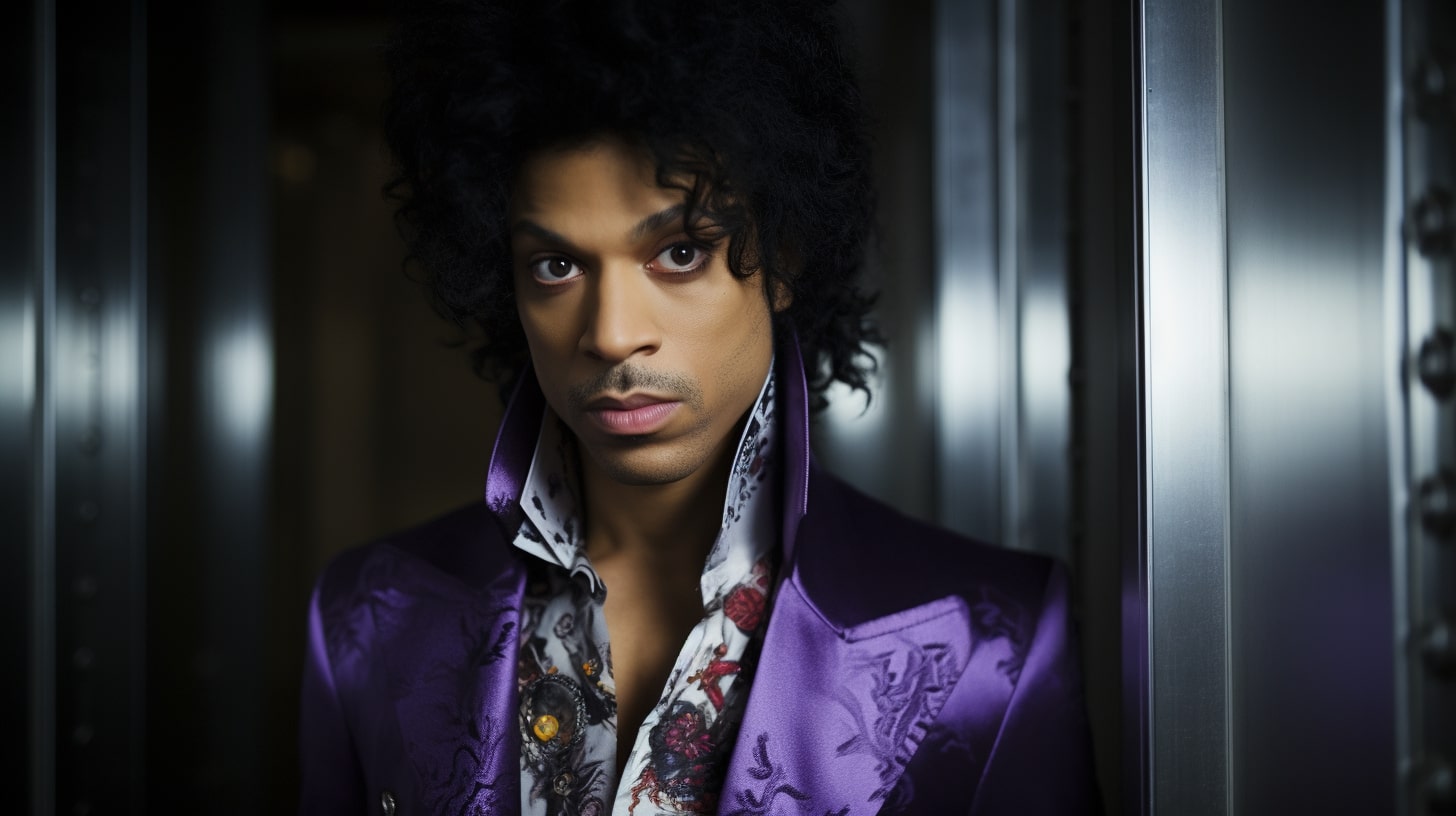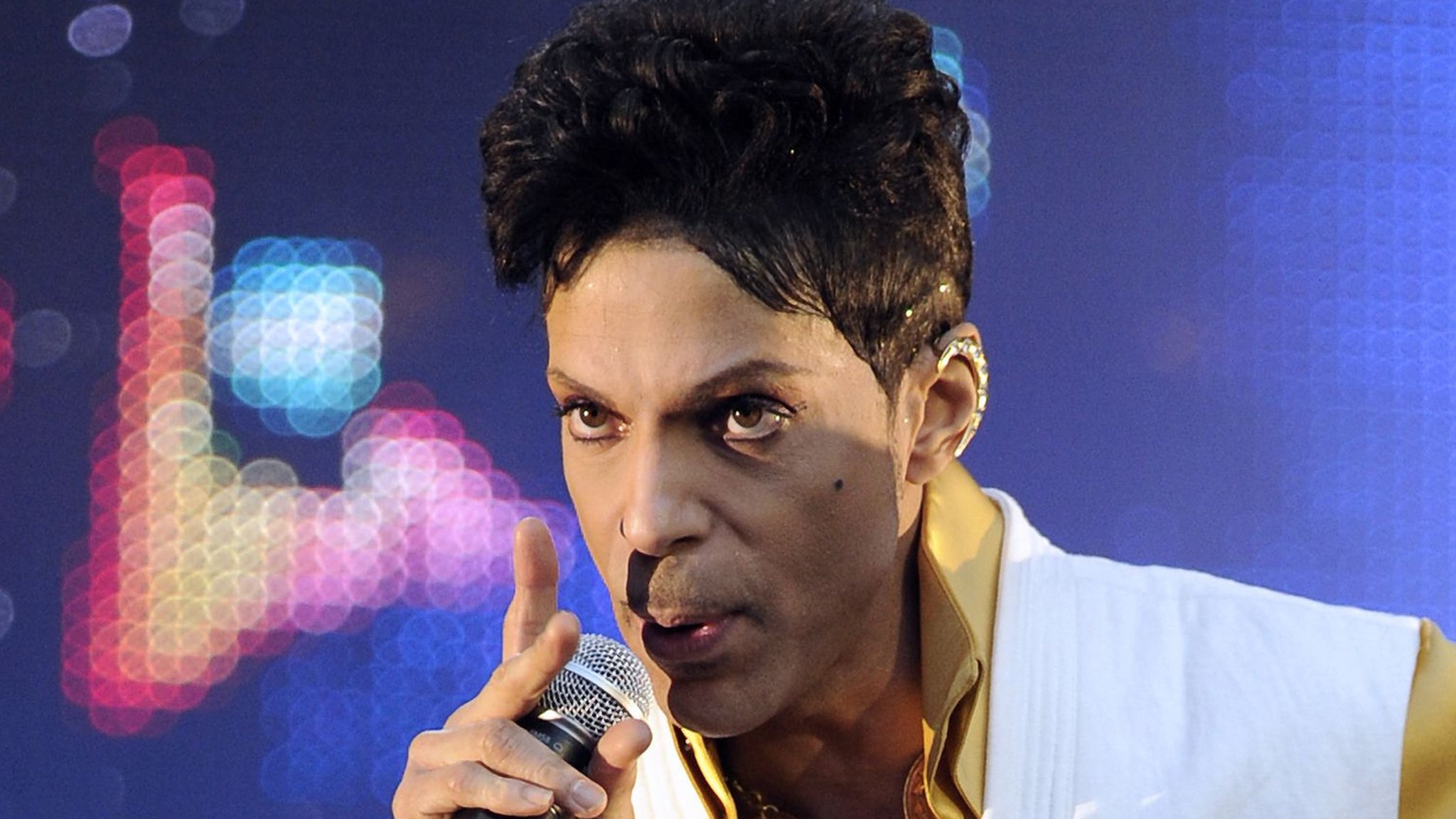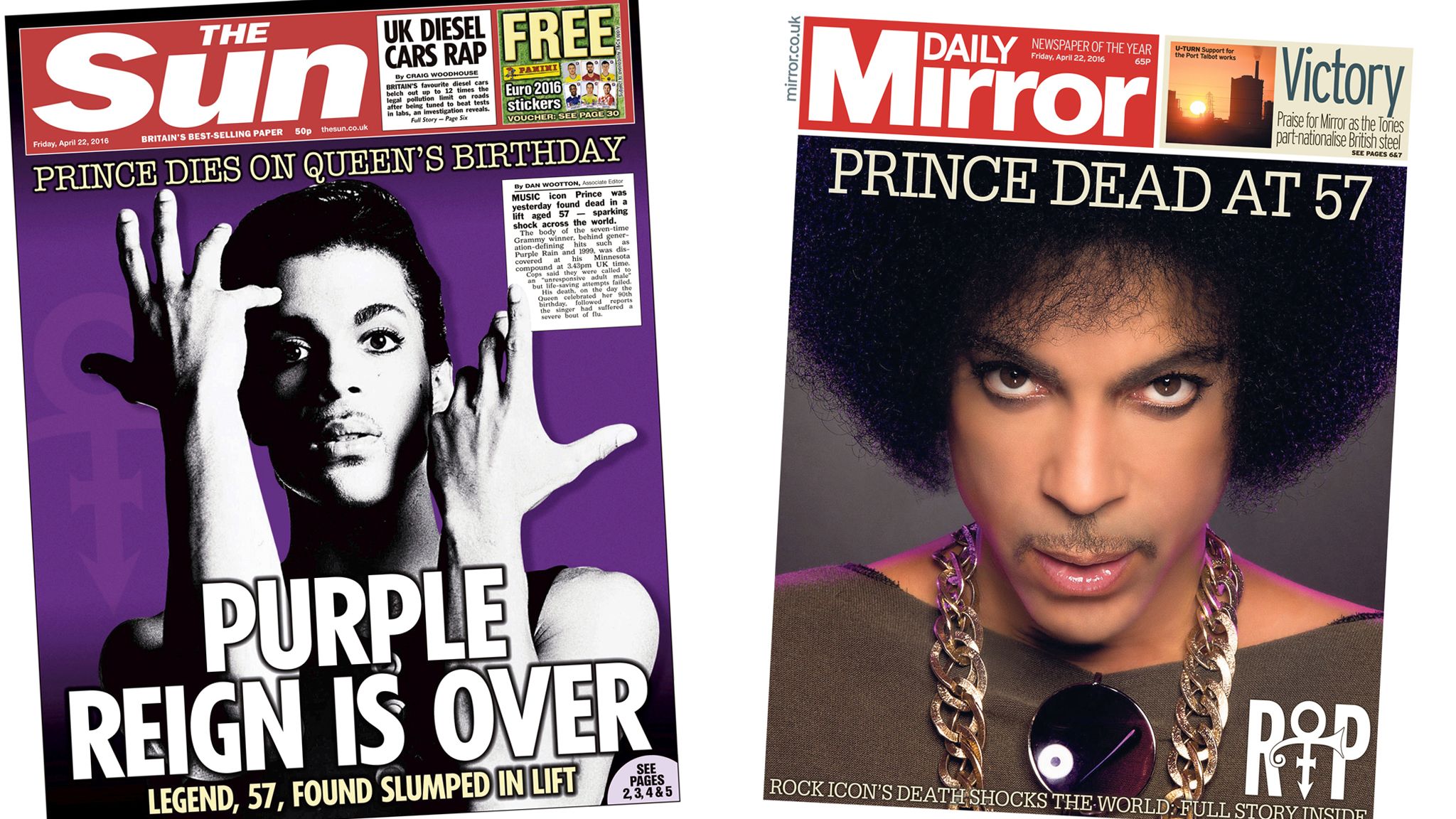The Tragic End: Unraveling How Did Prince Die
The world stood still on April 21, 2016, as news broke of the passing of a true music icon. Prince, the enigmatic and endlessly talented artist, was gone. His death sent shockwaves across the globe, leaving millions grappling with grief and an urgent question: how did Prince die? For an artist who seemed almost otherworldly, his sudden departure at just 57 years old felt profoundly premature, sparking an immediate and intense desire for answers about the circumstances surrounding his final moments.
Beyond the initial shock, the details that slowly emerged painted a somber picture, revealing a hidden battle and an accidental tragedy. This article delves into the official findings and the heartbreaking truth behind the passing of a legend, exploring the events of that fateful day, the medical revelations, and the broader implications of his death.
Table of Contents
- The Life and Legacy of a Music Icon
- The Fateful Day: April 21, 2016
- The Autopsy's Revelation: Accidental Overdose
- Fentanyl: A Potent and Perilous Opioid
- The Physical Toll: A Stark Decline
- A Nation Mourns: The Outpouring of Grief
- Prince's Enduring Legacy
- Conclusion
The Life and Legacy of a Music Icon
Before we delve into the tragic details of how Prince died, it's essential to reflect on the extraordinary life he lived and the indelible mark he left on music and culture. Born Prince Rogers Nelson on June 7, 1958, in Minneapolis, Minnesota, he quickly emerged as a musical prodigy. From his early days, it was clear he possessed a unique vision and an unparalleled talent. He was a multi-instrumentalist, a prolific songwriter, a captivating performer, and a fearless innovator who defied genres and expectations. Prince pioneered what became known as the "Minneapolis Sound," a distinctive blend of funk, R&B, rock, pop, and new wave. His music was characterized by its infectious grooves, intricate arrangements, and often provocative lyrics. Albums like "1999," "Purple Rain," "Sign o' the Times," and "Lovesexy" are considered masterpieces, each showcasing his incredible range and artistic ambition. He sold over 150 million records worldwide, won seven Grammy Awards, an Academy Award for Best Original Song Score for "Purple Rain," and a Golden Globe Award. Beyond the accolades, his influence permeated every facet of popular music, inspiring countless artists across generations. His stage presence was legendary – a dazzling display of charisma, athleticism, and raw musicality that captivated audiences globally. Prince was not just a musician; he was a cultural phenomenon, a symbol of artistic freedom and individuality. His passing would leave a void that no one could fill.Personal Data & Key Milestones
To fully appreciate the gravity of his loss, here's a snapshot of Prince's personal data and key milestones:| Category | Details |
|---|---|
| Full Name | Prince Rogers Nelson |
| Born | June 7, 1958 |
| Died | April 21, 2016 |
| Age at Death | 57 years old |
| Occupation | Singer, Songwriter, Multi-instrumentalist, Record Producer, Actor |
| Known For | Pioneering the "Minneapolis Sound," influential music, prolific personality, iconic performances |
| Genres | Funk, R&B, Rock, Pop, Soul, New Wave |
| Instruments | Vocals, Guitar, Bass, Drums, Keyboards, Synthesizer, Percussion, etc. |
| Years Active | 1976–2016 |
The Fateful Day: April 21, 2016
The details surrounding Prince's death began to surface shortly after the initial shock. On April 21, 2016, at the age of 57, Prince was at his home at his Paisley Park compound in Chanhassen, Minnesota. This sprawling studio and residence was not just his home but his creative sanctuary, a place where much of his groundbreaking music was conceived and recorded. It was here, within the very walls that echoed with his genius, that tragedy struck. He was found alone and unresponsive in an elevator at his Paisley Park studio compound. Reports indicated that he was found lying unconscious near the elevator. The discovery was made by staff members who had been unable to reach him. Emergency services were immediately called to the scene, but despite their efforts, Prince was pronounced dead shortly after. The immediate cause of death remained unknown, sparking intense speculation and a desperate wait for official answers. The image of such a vibrant and energetic artist being found in such a quiet, solitary, and unresponsive state was profoundly unsettling, amplifying the world's desire to understand exactly how did Prince die.The Autopsy's Revelation: Accidental Overdose
The mystery surrounding Prince's sudden passing began to unravel with the official autopsy results. The Midwest Medical Examiner's Office in Minnesota conducted the examination, and their findings were definitive: Prince died of an accidental overdose of fentanyl. This critical piece of information was revealed in a press release from the Ramsey, Minnesota, office, confirming the cause of death that had been speculated by some but remained unconfirmed until then. The report from the medical examiners provided the stark truth. It confirmed that the legendary singer's death was not due to natural causes or any other underlying condition, but rather an acute drug intoxication. This revelation was both clarifying and heartbreaking, shifting the narrative from a sudden, unexplained loss to a tragic, accidental event. The accidental nature of the overdose was a key finding, suggesting that Prince did not intend to take his own life, but rather succumbed to the potent effects of a substance he may not have fully understood. The question of how did Prince die was now answered with a clear medical finding, but it opened up new questions about the circumstances leading to that fatal dose.Fentanyl: A Potent and Perilous Opioid
The term "fentanyl" became synonymous with Prince's death, bringing this incredibly dangerous synthetic opioid into the mainstream consciousness. Autopsy results showed that Prince died of an overdose of fentanyl, a powerful opioid painkiller that is up to 50 times more potent than heroin. To put that into perspective, fentanyl is a synthetic opioid 50 times more powerful than heroin, making it incredibly dangerous even in minute quantities. Its potency means that even a tiny amount, equivalent to a few grains of salt, can be lethal. The most crucial detail that emerged from the investigation, as stated by a Minnesota prosecutor, was that Prince died after taking what he thought was Vicodin but was actually a counterfeit painkiller that was laced with fentanyl. This distinction is vital: authorities say it is likely Prince didn’t know he was taking the dangerous substance. He believed he was taking a much weaker opioid, Vicodin, which he had reportedly been using for pain management. This highlights the insidious nature of counterfeit drugs, which are often produced in illicit labs without any quality control, leading to unpredictable and often fatal concentrations of powerful substances like fentanyl. The tragic irony is that Prince, a meticulous artist who controlled every aspect of his creative output, was unknowingly exposed to a deadly threat through a seemingly innocuous pill. The answer to how did Prince die was not just "fentanyl overdose," but "fentanyl overdose from a counterfeit pill he believed was something else."The Hidden Battle: Addiction and Misinformation
The revelation that Prince died from an accidental overdose of fentanyl also brought to light a hidden battle with addiction. Amidst his hidden battle with addiction, Prince succumbed to the synthetic opioid. While the full extent of his struggle may never be entirely known, the presence of opioids in his system and the context of his death suggest a private struggle that he kept largely out of the public eye. Like many who suffer from chronic pain or addiction, Prince may have sought relief through medication, unknowingly stepping into a perilous trap set by illicit drug manufacturers. The critical factor in his death was the misinformation surrounding the pills he ingested. The fact that he likely didn’t know he was taking fentanyl underscores a terrifying reality of the modern opioid crisis: the proliferation of counterfeit pills. These pills are often made to look exactly like legitimate prescription drugs but contain deadly amounts of fentanyl or other potent synthetic opioids. This makes them incredibly dangerous, as individuals taking them have no idea of the true potency or contents. Prince's death served as a stark, high-profile example of this growing public health crisis, illustrating how even those with access to the best care can fall victim to the unpredictable and lethal nature of the illicit drug supply. His passing became a tragic cautionary tale, emphasizing the urgent need for awareness about counterfeit drugs and the dangers of fentanyl.The Physical Toll: A Stark Decline
While the immediate cause of Prince's death was the fentanyl overdose, there were also indications that his health had been in decline in the period leading up to his passing. According to Wendy Melvoin, a longtime collaborator and friend, Prince, who weighed around 65.7 kg (approximately 145 lbs) when healthy, was down to around 45 kg (approximately 99 lbs) when he died. This significant weight loss, nearly 20 kg (44 lbs), suggests a period of considerable physical distress or illness that may have been related to his hidden battle with pain or addiction. Such a drastic change in body weight can be indicative of various underlying health issues, including chronic pain, digestive problems, or the effects of drug dependency. While the autopsy focused on the immediate cause of death, this anecdotal evidence from those close to him paints a picture of a man who was quietly struggling. The physical decline, though not the direct cause of his death, likely contributed to his vulnerability and perhaps his reliance on painkillers. It adds another layer of poignancy to the question of how did Prince die, suggesting that his passing was the culmination of both a tragic accident and a private struggle with his health.A Nation Mourns: The Outpouring of Grief
The news of Prince's death sparked a national outpouring of grief, extending far beyond the borders of the United States to touch fans across the globe. It's been one year since beloved musician Prince died of an opioid overdose at his home in Minnesota, and the collective sorrow remains palpable. The singer was just 57 years old, and fans and friends alike publicly expressed their profound sadness and shock. From impromptu street parties celebrating his music to solemn vigils, people found various ways to honor his memory. Landmarks around the world, including the Eiffel Tower and Niagara Falls, were lit in purple, his signature color, as a tribute. His death was not just the loss of a celebrity; it was the loss of an artist who had deeply influenced generations, soundtracked countless lives, and pushed the boundaries of music and identity. The outpouring of emotion highlighted the deep personal connection people felt to his artistry. Social media was flooded with tributes, anecdotes, and shared memories of his concerts and songs. Musicians, actors, politicians, and everyday people shared stories of how Prince's music had touched their lives, underscoring the universal impact of his genius. The collective mourning was a testament to his unparalleled legacy and the profound void he left behind.Lessons from a Tragedy: The Opioid Crisis
Prince's death, while deeply personal, also cast a harsh spotlight on a much larger public health crisis: the opioid epidemic. The fact that he died from an accidental overdose of fentanyl, a synthetic opioid 50 times more powerful than heroin, served as a grim reminder of the dangers lurking in the illicit drug supply. His case brought national attention to the fact that even seemingly legitimate pills obtained outside of a pharmacy can be deadly, often laced with fentanyl without the user's knowledge. This tragic event underscored several critical lessons:- The potency of Fentanyl: It highlighted just how lethal fentanyl is, even in tiny doses, and how easily it can be unknowingly ingested.
- The danger of counterfeit drugs: Prince's death was a stark warning about the proliferation of fake pills made to look like prescription medications but containing deadly substances.
- The universality of addiction: It showed that addiction can affect anyone, regardless of fame, wealth, or talent, often in silence.
- The need for awareness: His passing spurred conversations about safe medication practices, the importance of obtaining drugs only from licensed pharmacies, and the risks associated with buying pills online or from unregulated sources.
Prince's Enduring Legacy
Even after his untimely death, the legacy of Prince continues to grow, his influence undiminished. The question of how did Prince die, while tragically answered, does not overshadow the monumental impact he had on music and culture. He remains a towering figure, celebrated for his fearless artistic expression, his unparalleled musical talent, and his unwavering commitment to his craft. His vast catalog of music, much of it still unreleased at the time of his passing, continues to be discovered and revered by new generations of fans. Beyond his musical contributions, Prince's death also left a lasting impact on public health awareness. His accidental overdose brought the dangers of fentanyl and counterfeit drugs into sharp focus for millions, potentially saving lives by raising awareness about the opioid crisis. His story serves as a powerful, albeit tragic, example of the hidden struggles many face and the unpredictable dangers of the illicit drug market. His passing, deemed an accidental overdose, serves as a poignant reminder of the fragility of life, even for those who seem invincible.The Ongoing Quest for Answers
While the medical examiner's report definitively answered how Prince died, the broader investigation into the source of the counterfeit drug continued for some time. A Minnesota prosecutor stated that Prince died after taking what he thought was Vicodin but was actually a counterfeit painkiller that was laced with fentanyl. This indicated a thorough investigation into the chain of events leading to his death. Ultimately, authorities concluded that there was no evidence to support criminal charges in his death, emphasizing that he likely did not know he was taking the dangerous substance. The focus shifted from criminal intent to the public health implications of illicit drug manufacturing and distribution. The official findings underscored the accidental nature of his death, reinforcing the idea that Prince was a victim of a dangerous, unregulated drug supply rather than someone intentionally misusing substances. This conclusion, while painful, provided a measure of closure for fans and family, affirming that his passing was a tragic accident rooted in a deceptive and deadly encounter with a counterfeit drug. The detailed investigation into how did Prince die served not only to explain his passing but also to shed light on a broader societal issue.Conclusion
The passing of Prince on April 21, 2016, at the age of 57, was a profound loss that left the world reeling. The question of how did Prince die was answered unequivocally by medical examiners: he died of an accidental overdose of fentanyl. This powerful synthetic opioid, 50 times more potent than heroin, was unknowingly ingested by Prince in a counterfeit painkiller he believed to be Vicodin. Authorities confirmed that it is highly likely Prince did not know he was taking the dangerous substance, highlighting the insidious nature of illicit drug markets. His death sparked a national outpouring of grief, underscoring the immense impact he had on music and culture. Beyond the sorrow, his tragic passing also brought critical attention to the devastating opioid crisis and the perils of counterfeit drugs. Prince's journey, from his prolific career as a pioneer of the Minneapolis Sound to his hidden battle with addiction and his accidental death, serves as a poignant reminder of both the fragility of life and the urgent need for awareness regarding substance use and the dangers of illicit drug supply. We invite you to share your thoughts on Prince's enduring legacy or how his music touched your life in the comments below. What do you remember most about Prince? Let us know. And if you found this article informative, please consider sharing it to help raise awareness about the dangers of counterfeit drugs and the ongoing opioid crisis. You can also explore other articles on our site about music legends and public health issues.


Detail Author:
- Name : Abagail Shanahan
- Username : michelle.breitenberg
- Email : reginald69@yahoo.com
- Birthdate : 1986-02-18
- Address : 83987 Elwin Loaf Suite 242 North Jeff, SC 51649-9647
- Phone : (380) 829-3528
- Company : Emmerich, Sipes and Mayer
- Job : Airfield Operations Specialist
- Bio : Tempore inventore ratione nobis et. Adipisci animi provident eaque modi inventore dolorem. Fugiat qui fugit et totam ut ut.
Socials
twitter:
- url : https://twitter.com/alva.mohr
- username : alva.mohr
- bio : Veniam qui non corrupti laudantium molestiae. Laboriosam est fugiat ratione vel et.
- followers : 6128
- following : 766
facebook:
- url : https://facebook.com/alva4691
- username : alva4691
- bio : Molestiae cum velit distinctio. Qui placeat voluptatem omnis ea expedita.
- followers : 6233
- following : 1709
tiktok:
- url : https://tiktok.com/@amohr
- username : amohr
- bio : Error in minus quod numquam sunt. Quo tempore unde omnis sit.
- followers : 4531
- following : 2443
linkedin:
- url : https://linkedin.com/in/alva5987
- username : alva5987
- bio : Dolores porro adipisci culpa.
- followers : 1305
- following : 102